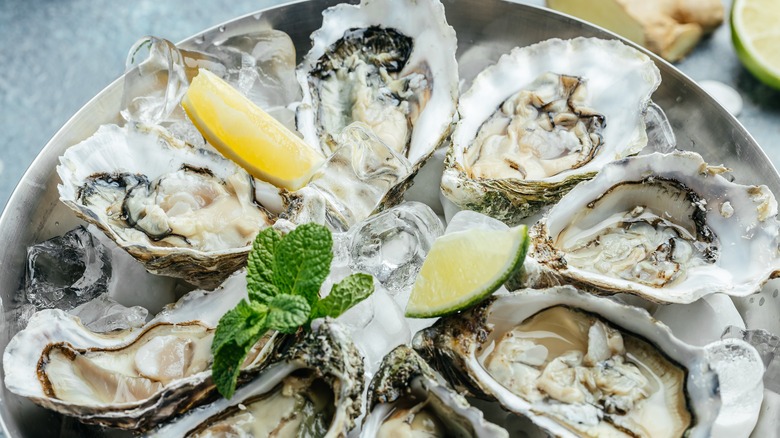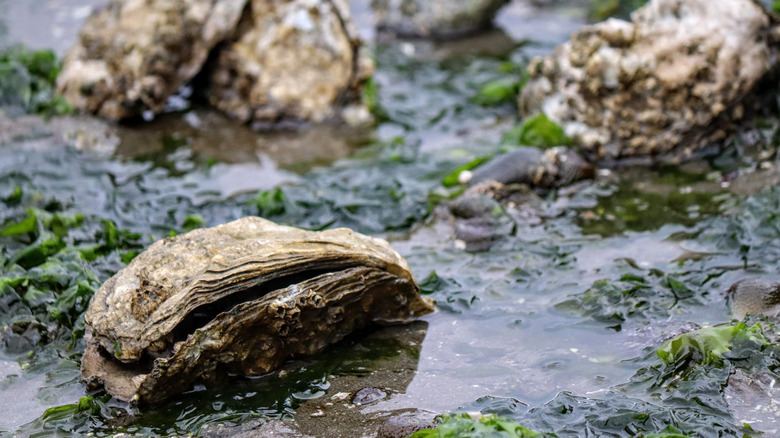Florida Oysters Linked To Multi-State Salmonella Outbreak
Health departments in Florida, Georgia, and Alabama have reported an outbreak of Salmonella cases tied to eating raw oysters harvested in Florida. Per the FDA advisory, the contaminated shellfish have been traced to a single area for harvesting in the state. The contamination alert affects consumers and businesses in all three states and possibly more due to further distribution.
That means oyster fans outside of the three named states should also be cautious. An illness can occur in anyone consuming the Salmonella-tainted oysters, but the severity potentially increases in children, elderly adults, and immunocompromised people. The effects can become life-threatening, according to the U.S. Centers for Disease Control and Prevention (CDC), which estimates 1.35 million Salmonella infections occur annually, resulting in 26,500 hospital stays and more than 400 deaths.
It's important to note that Salmonella-tainted foods, including oysters, might seem just the same as untainted ones. Following infection, symptoms generally appear within a 12-to-72-hour window. Here's what is known about the outbreak as of March 3.
Salmonella infection areas and known illness
Recalled wild-harvest oysters potentially harboring Salmonella bacteria came from harvest area FL-3012 in Cedar Key, Florida, between December 16, 2022, and February 24, 2023, according to the FDA. The area is now under an emergency closure order issued by the Florida Department of Agriculture and Consumer Services. The oysters were subsequently sold to eateries and retail locations in Florida and the nearby states of Alabama and Georgia. At least eight people have fallen ill across those states. But again, the impacted area could be larger.
Symptoms in mild cases include fever and gastrointestinal issues such as diarrhea and abdominal cramps. But someone who is more seriously ill may experience lethargy, rashes, headaches, body aches, higher fevers, and blood present in urine or feces. Fortunately, oyster packaging identifies original harvest areas and dates, so consumers and restaurants can look for wild oysters bearing labels of "FL-3012, Cedar Key, Florida" harvested within the specified dates. Those shellfish should be tossed out or returned to the distributor. It's important to take precautions in both instances. Cross-contamination can occur, requiring cleaning and sanitation of any kitchen tools or surfaces.
This is not the only oyster-related outbreak to affect the trio of states in recent months. According to food the CDC, last year, they were part of an eight-state norovirus outbreak linked to oysters from Texas. Nearly 300 related illnesses were recorded by the end of December.

